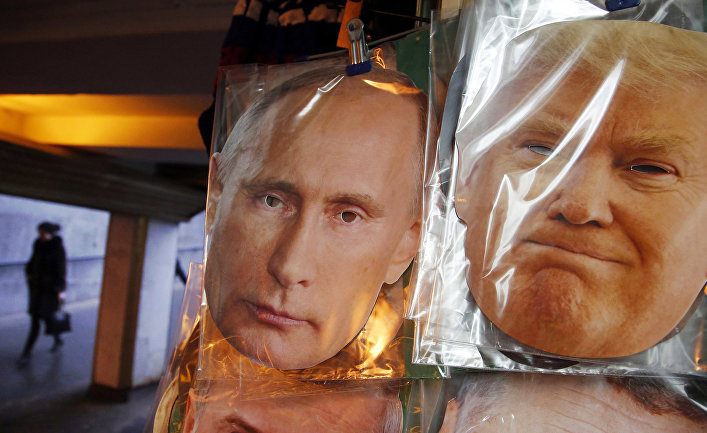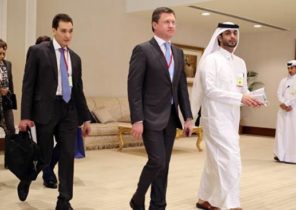
Such arguments are in the new book “the Near abroad: Putin, the West and the struggle for Ukraine and the Caucasus” authored by geographer Gerard Toala (Gerard Toal). The author analyzes the conflict in Ukraine in 2014 and Georgia and South Ossetia in 2008, paying close attention to the various parties used the rhetoric.
Although the statements of the parties is widely seen as a smokescreen that hides the “real” geopolitical motives, Toal refers to the rhetoric of the parties more seriously. In his published in 1996 the book “Critical geopolitics”, which became one of the pillars of the industry knowledge with the same title, Toal tried to analyze the essence of geopolitics. According to Toala, although people like Mackinder, Dugin and Brzezinski argue that their theory is built on a scientific, objective basis in fact for these theories of hidden personal prejudices and emotions of the people with state power.
In his new book, Toal applies his theory to the recent conflict in the former Soviet Union. These conflicts are usually dealt with in one of two main versions: either Russia is a revanchist Imperial power (the so-called “liberal” approach), or Russia is a rational player that counteract threats to their own security (“pragmatic” approach). But, according to Toala, both these versions have flaws. It offers carefully analyze what emotions the parties felt about these conflicts, calling this approach “emotional geopolitics”.
“In the framework of the current geopolitical crisis is extremely ironic the fact that the US and Russia in their geopolitical culture using structurally similar emotional storyline, and the result is conflicting interpretations of the same events,” says Toal. In particular, speaking about the war over South Ossetia in 2008, Toal said: “Critical to understanding how the war was perceived in Russia and the United States… is the understanding of the use of both sides of the structurally similar myths on the topic of victims and saviors, filled with colonial terms. From the point of view of Russia, Ossetians are victims of a resurgent fascist nationalism, and genocidal. With the US position, little Georgia is a victim of a resurgent Russian Imperial aggression”.
The Georgian government has learned to speak the language of American foreign policy. This process began under President Eduard Shevardnadze, but was brought to perfection under his successor, Mikheil Saakashvili. This language is rich in globalist terms, like “free world” and “democratic values”, flattering US, but hides a complex and ambiguous reality in South Ossetia.
“Saakashvili is not just expressed the Georgian interest in the language adopted under the Bush administration. He almost literally learned the language, and then enthusiastic convert, in turn, was voiced by Bush and other louder versions of their tenets, — says Toal. So they built a relationship based on mutual admiration and reinforcement of the beliefs of each other. The Bush administration had projected for Saakashvili, their ideological aspirations and desires, he repeated, and the answer was projected on the Bush administration’s own ideological aspirations and desires.”
During the five-day war in 2008, Georgia’s explanation about his actions changed at least reduce the chances of success. First, Saakashvili touted, in language reminiscent of the explanation of the US invasion of Iraq — the liberation of the enslaved population and the restoration of order in areas plagued by lawlessness. “A country where there is law and order can no longer tolerate this mired in the chaos of a geopolitical black hole”, paraphrases Toal in his book the words of Saakashvili.
But when the situation changed and it became clear that Russia has the upper hand, the statements began to emphasize Russian “invasion” (for which, as a convincing demonstration of toal, it was necessary to falsify the chronology of events, particularly concerning the passage of Russian military columns through the Roki tunnel from Russia into South Ossetia), the purpose of which was the failure of the efforts of Georgia to build a free and democratic state.
Meanwhile, the interpretation of this war, the Kremlin, according to Toala, were based on Putin’s desire “to restore the greatness of Russia.” Putin saw NATO closer to the Russian border, as ethnic Russians and other minorities are suffering in neighboring post-Soviet countries. And the sudden Georgian attack on South Ossetia, which killed Russian peacekeepers, caused the Kremlin an emotional response.
“Saakashvili’s actions caused the Russian leadership’s anger and disgust. It was emotional, not strategic geopolitics, and heard the words “war criminal” and “genocide” was not from the lexicon of diplomacy or pragmatic geopolitics. It was the language of righteous anger” — says Toal.
“Saakashvili was called Hitler, Saddam Hussein, but more often it is presented as a cross between these two persons — insane and blood-thirsty extremist. Proclaiming August 12 of the armistice, [President Dmitry] Medvedev said that “some people, unlike normal people, if feel the taste, then it is difficult to stop””.
Of course, this approach also has shortcomings. But in a changing world where objective facts influence the formation of public opinion less than appeals to emotions and personal opinions, it is worth to take a closer look and more attention to how States present events.







